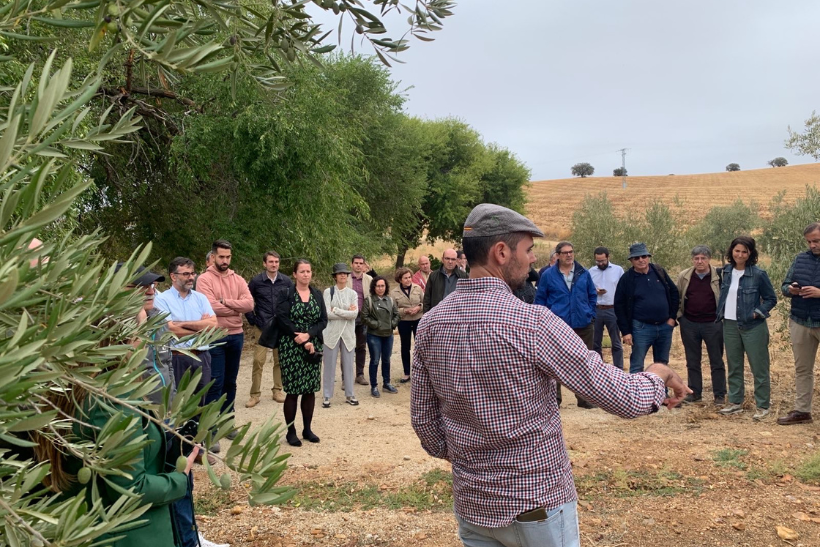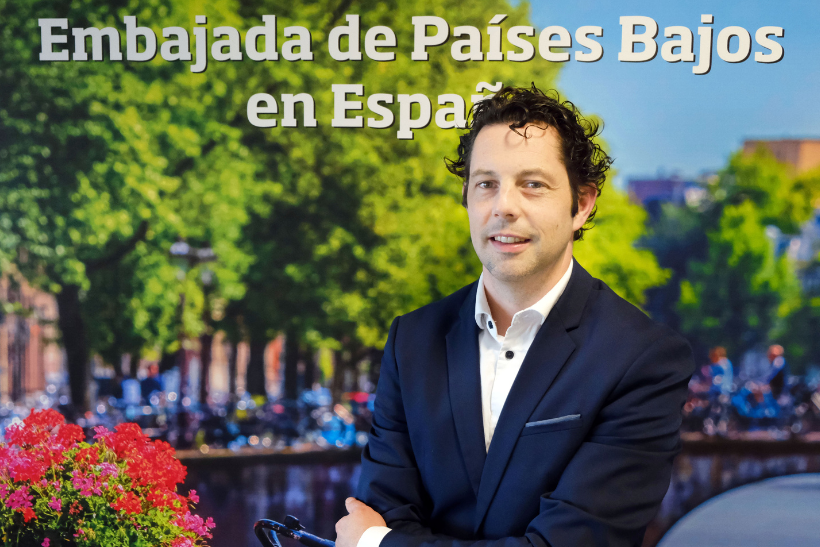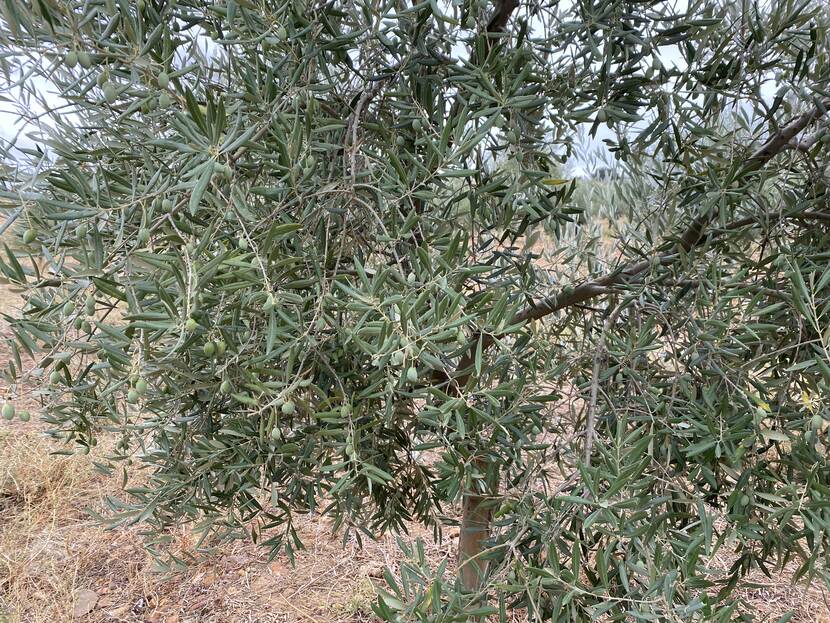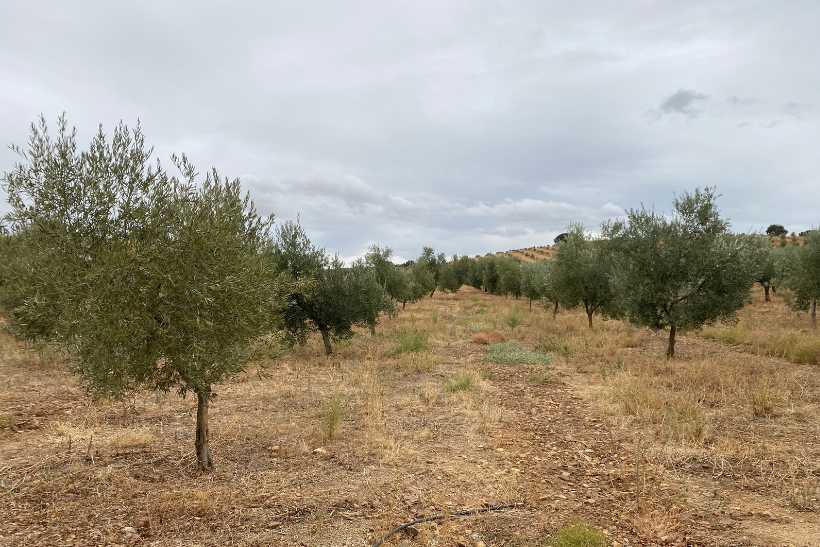Spain using a holistic approach to tackle water challenges
Machiel Kommers, the Agricultural Counselor for Spain and Portugal and stationed at the Dutch embassy in Madrid, is confronted with increasing water challenges in these countries. Both in Spain and Portugal, Kommers witnesses first-hand the consequences of droughts and salinization on the local agricultural sector. As the Netherlands Agricultural Network (LAN) has committed to improving global food security and enhancing climate adaptation, sustainable water management has become a top priority for Kommers. In this interview, he discusses how Spain, is working towards an integrated water management using the Dutch Diamond approach.

Can you tell us more about the water-related issues in Spain?
“In Spain, people often say, ‘the Sahara starts here’, which sums up the main issue: desertification," Kommers begins. "Agricultural land is becoming more and more arid due to droughts, erosion and nutrient depletion. For example, droughts are becoming more prevalent in areas like Catalonia, Extremadura, Murcia and Andalusia. These regions are vital for agricultural production, as they are where much of Spain’s fruits and vegetables are grown. With water becoming scarcer and desertification more pressing, tensions between sectors over water resources are rising. Water is becoming more and more a political issue."
"On the coast, the main water challenge is salinization: water is getting saltier, which affects irrigated crops, biodiversity, and the land. So yes, water quality and quantity are significant challenges in Spain. These issues present an interesting case for the Netherlands, as we, too, will face more droughts and salinization in the future.”

“If we really want to make an impact and move forward, we need to rethink our agricultural practices alongside all stakeholders.”
How do you address these challenges in your work as Agricultural Counselor?
“We take to a holistic approach and consider how different factors work together when we address these water challenges. In the Netherlands, we have a long history of using this approach known as the Dutch Diamond, with examples like the ‘Room for the River’ project, the Delta Works, and our traditional polders. This makes us a logical partner to get involved in tackling these issues. If we really want to make an impact and move forward, we need to rethink our agricultural practices alongside all stakeholders. We must find ways to reduce pesticide use and improve soil quality, which directly influence how much water is needed."
Kommers continues, “One example of this holistic approach is a project focused on Climate Smart Agriculture in Castilla La Mancha, near Madrid. This region produces woody crops like olives, grapes and almonds. Traditionally, farmers plough the soil, believing it prevents weeds from competing with trees for water. However, ploughing dries out the soil. Our Netherlands Agricultural Network (LAN) team at the Dutch embassy in Spain conducted a study together with Wageningen University Research to assess the impact of cover crops on production and soil quality in this region. We found that the water needs were significantly reduced compared to conventional methods. The benefits of cover cropping extend beyond water use, as it also prevents soil erosion and reduces the need for fertilizer. The knowledge and experience that is developed here in Spain, a laboratory of climate change adaptation, will be crucial for the Netherlands as we face a hotter and drier climate in the future.”

How did the local farmers receive this project?
“Initially, there was some skepticism. The project aimed to create showcases that demonstrate what sustainable land and water management looks like and how this affects production. Farmers were primarily concerned that the project might negatively impact their yields. However, when considering the reduced costs for fertilizer and irrigation, it became clear that the farmer would benefit economically,” Kommers notes.
Can you give an example of a project where you work specifically on the water-biodiversity-food nexus?
“One region that is unique from a biodiversity perspective is the Mar Menor; the largest salt water in Europe covering an area of 170 kilometers. This region is close to the sea but separated by a narrow strip of land. The Mar Menor is near a protected nature area reserve with significant biodiversity. Unfortunately, this area is being polluted, mostly by agricultural nitrates, industrial waste, and tourism. This situation perfectly exemplifies the water-biodiversity-food nexus, as the pollution not only threatens the delicate ecosystem but also impacts agricultural practices and food production in the region. Rather than opting for a purely technical solution, we chose an innovative, holistic approach: bringing all stakeholders together to discuss how we can collectively solve the water issues here."
"Often, when water scarcity becomes a problem, the response is to drill deeper or more advanced irrigation systems - the easiest option. In the case of the Mar Menor, we were initially asked to come up with a similar technical solution, particularly for the agricultural sector. However, we chose a stakeholder approach, because the environmental issues here are severe and require a bottom up approach."

"By bringing different stakeholders to the table, we can move beyond political considerations and work on a holistic approach from a regional level."
What is your long-term vision for the agricultural sector in Spain?
“We want to work on innovation in the broadest sense of the term, including both technical advancements and governance improvements. Sometimes, we need to rethink our approach to water governance. Water is a highly political topic, making it challenging for us as a Dutch embassy and LAN team to get involved. Therefore, it helps to take a step back and ask: what are the long-term needs in this specific situation? By bringing different stakeholders to the table, we can move beyond political considerations and work on a holistic approach from a regional level,” Kommers concludes.
More information and contact
For more information, you can visit the country page of Spain on the website Agroberichtenbuitenland.nl of the Dutch Ministry of Agriculture, Fisheries, Food Security and Nature. You can also send an e-mail to the LAN team at the Dutch Embassy in Madrid: mad-lnv@minbuza.nl.
This article is part of the 12th edition of the e-magazine Agrospecial titled "Tackling agricultural water challenges worldwide" (originally published on August 23, 2024).
In this Agrospecial, the Netherlands Agricultural Network (LAN) showcases the opportunities and challenges associated with water management. The Agricultural Counselors in Côte d’Ivoire, Mexico, Saudi Arabia, South Africa, Spain, and Vietnam introduce us to their related work, provide insights into what is happening in their respective countries, and highlight examples of how LAN is tackling water challenges through international collaboration.